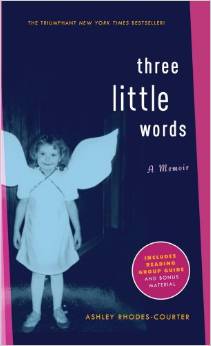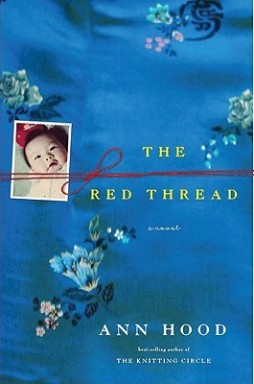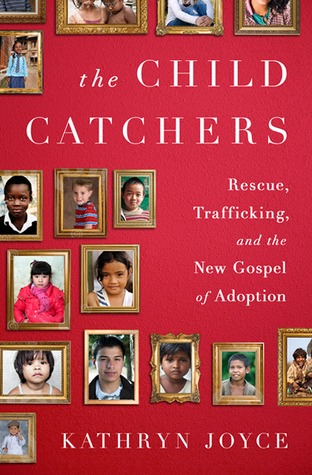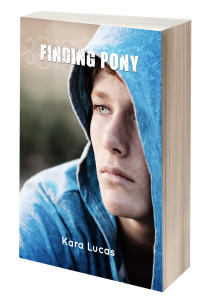
Many of our CHI families will smile if you check out this book cover closely. If the author was your former social worker – you can now claim to know a famous author!
The lovely Kara Lucas, MSW, has written a fiction novel, Finding Pony,  which has proven to be quite the page turner! You might not be aware, but several of our CHI social workers are quite bookworm-ish ~ and therefore several of us obtained a copy upon the debut. As an agency, we have always loved to review books that may have an impact on our adoptive families.
which has proven to be quite the page turner! You might not be aware, but several of our CHI social workers are quite bookworm-ish ~ and therefore several of us obtained a copy upon the debut. As an agency, we have always loved to review books that may have an impact on our adoptive families.
Briefly, Finding Pony is a Young Adult fiction novel about a boy trying to find his sister in foster care. Obviously, that subject matter is important to the hearts of CHI! Although Kara is no longer a social worker for CHI ~ she has graciously agreed to do an “Ask The Author” piece for us. Please enjoy that interview below.
Also, in the spirit of creating Adoption Awareness during the month
of November, Kara has graciously gifted CHI with a book to give away. Please visit our Facebook page and follow the instructions there, to be entered to win! (Kara also mentions that there will be a give-away on Goodreads during the month of November!)
Here are the questions we supplied Kara and we thank her immensely for sharing her writing talents with us via her new book & also in each of her answers below.
CHI: I love how you titled each chapter. The titles drew me in and kept me reading (“Just one more chapter before bed..,” I thought. Well… until I read the next title & was sucked in further!)
The titles contributed to the pace of the novel, which is swift and full of angst and tension. I bet a true foster care experience would “feel” similarly paced, by those experiencing it. Although your novel is fiction, the thoughts and feelings struck me as highly realistic. How did you wrap your head around what Pony and Jesse might be feeling and thinking?
Kara: Thank you very much Stacy for your kind compliments. I wanted the book to be a fast, quick read that got people staying up to read it, so I am very glad that I accomplished my intended goal!
Yes, I wanted Finding Pony to be realistic. I knew I wanted to write about kids experiencing the foster care system because I have witnessed what they go through, first hand. When I was researching other fiction books in the genre, I felt that many of the books available for teens weren’t realistic enough–they seemed to me to be too sugar-coated, or too loaded with inaccuracy. I wanted something real, that (in a fictional way) reflected my observations as a social worker.
I really tried to put myself in Jesse’s head when I was writing. I have three teenagers myself right now, so it is easy to write angst when you are around it a lot! Also, back in college, I worked at a group home for juvenile violent offenders. That experience–one of my earliest in the social work arena–taught me a lot about human nature. One truth that really struck me about working in that group home is that, at the end of the day, most of those boys were just kids who were in bad circumstances, making bad choices. Despite their crimes, I liked many of them quite a bit, and saw their humanity and inherent goodness. So, to speak to your comment about the book being realistic, I think that my experiences in social work gave me an advantage, for sure. As far as wrapping my head around the characters, I think that is just the fun of writing–immersing yourself in that person’s skin, and imagining what they might do.
CHI: Those considering a fost/adoption may be frightened after reading this fiction. What advice would you offer a Prospective Adoptive Parent who hasn’t read your book, but would like to? What words would you express to a family who has read it and might be jumping to the conclusion that this fictional story may be the “reality” of their future experiences?
Kara: Finding Pony is a young adult fiction novel–emphasis on the fiction part! As a writer, I wanted to write something fast and dramatic. As a social worker, I wanted the authenticity to be there, as well. Jesse’s inner struggle is, I hope, very real. Other issues: siblings getting separated in foster care, parents who are drug users, kids getting molested in foster care, sexual trafficking (the Indian’s story)–any social worker will tell you that yes, sadly, these things do happen.
But as a work of fiction, the drama is definitely exaggerated. I would want to remind any prospective adoptive parents that, no, teenage kids in foster care do not typically try to kidnap their siblings! In fact, I have never seen it happen, ever, nor with birth parents. A common question prospective adoptive or foster parents often have had for me is this: will the birth parents search for the children? Will they come to my home? I have actually never seen that happen in a non-relative adoption.
The thing about kids in foster care, teens included, is at the end of the day, they are just kids. I have seen some kids in adoptive homes transition extremely well, despite their issues, and others really struggle. It just depends on the individual child, & the individual family. However, I have always been so impressed with adoptive homes, including some of my beloved former Chrysalis House families, by their ability to just deeply be there with a child who is hurting, and really be successful in creative a nurturing, safe environment in which that child can blossom, and ultimately heal from their former traumas. Do you need to be a perfect parent? Absolutely not. Do you need to have a lot of love, compassion, and understanding? Yes, yes, and yes.
Parenting any child, whether biological or through adoption, takes a lot of love, and courage. As they say, parenting is not for sissies! I would advise any prospective adoptive parent, as I did with my Chrysalis families and I do with my current Aspira families, is to ask a lot of questions during the certification process. Meet with other foster families and adoptive families. Read a lot of memoirs on adoption and foster care– & Pick your social worker’s brain. Educate yourself on some of the issues surrounding kids who have been in the foster care system, as much as you can. In Finding Pony, the main character Jesse struggles with, among other things, PTSD as a result of being molested in a foster home when he was a child. This is a very real issue some of these kids face.
CHI: Jesse and Pony have very different emotional reactions to their removal and adjust to their new life at very different paces. Do you feel this is typical of youth coming into care and dependent on age, maturity and former familial roles? Why do you feel Jesse and Pony adjusted in their individually unique ways?
Kara: I do feel it is typical. I have seen kids respond in a full spectrum of behaviors to how they initially adjust to life in their adoptive home, as I am sure you have as well. Again, I think a good yardstick is to view each child as an individual and meet them where they are at. I think anyone will attest to the fact that young children are very resilient, which is why many families will often be drawn to adopting younger children. However, younger children can struggle with trauma, and attachment issues as well, even when adopted at a very young age. Paradoxically, and perhaps incidentally, some of the easiest transitions during the adoption process happened with adopted teenagers. It all depends on the child, their background, the home, everything.
I think in Jesse’s situation, he struggled a lot with his identity. He felt rejected by his birth mother, and had conflicting feelings about being the primary caretaker for his sister, Pony. He was older and had a more realistic view of his world. He knew it was a rough place. He was perhaps more apprehensive and jaded about foster care than Pony, who bonded quite easily with her new adoptive parents, because he had had a previous bad experience in foster care. So when he encounters the DeLeons, he doesn’t trust them at first, and assumes that they will eventually hurt him, and give up on him, which has been his experience all of his life. Unfortunately I see this all the time with kids in care.
Pony, I saw as a little girl, who never really had a mother fussing over her, nurturing her. She had Jesse, but not that traditional functional family unit. Despite her love for her birth brother and mother, I really saw Pony as a little girl just soaking up the love, the attention of her adoptive parents, which ultimately facilitated her bond with them.
CHI: What are the best fictional books you would most recommend to Prospective Adoptive Parents on the topic of fost/adoption? Did any of these books have any impact on your writing of Finding Pony?
Kara: I don’t really have a favorite YA out there that addresses kids in foster care. Maybe that’s why I wrote this book. <grin> I keep looking, though.
Some pretty good titles for the teen market are: The Great Gilly Hopkins by Katherine Paterson (older, a classic), Right Behind You by Gail Giles, After by Amy Efaw, Sweet Hearts by Sarah Zarr, Returnable Girl, Hope in Patience (The Patience series, by Beth Faulbaum does not deal with foster care but sexual abuse), The Shadow Society by Marie Rutoski, One for the Murphy’s by Lynda Mullaly Hunt, The Genius Squad by Catherine Jinks, The Guardian by Joyce Sweeney, and Throwaway Girl by Kristine Scarrow. None of these books influenced the writing of Finding Pony, really, because the story came from inside of myself. When I started writing the book, though, I did my research. It was comforting to know that yes, there are teen books out there that deal with these issues!
If I was a prospective adoptive parent, though, I think I would stay away from the fiction books, for now, because it might distort your reality of what actually happens. I would recommend prospective adoptive parents to stick to memoirs and books on attachment, parenting, and learning what makes an adoption successful.
CHI: What message would you most like to give children in care who might read your story? Why would you advise that they read your book & why? What age range would you recommend the novel for & why?
Kara: I think I would want the kids to read my story who have been through foster care, or are in foster care, to get this message: I see you. What you have been through is tough, and hard, and I am blown away by your courage. Keep fighting for happiness, because you deserve it.
I would hope that kids who have been through foster care will maybe perhaps recognize pieces of themselves in this story. Pieces of their own life. I have been fortunate to have heard from some kids–a few adopted, some in a group home–who really loved Jesse’s story because it reminded them so much of themselves. Hearing their positive feedback was worth the world to me. And for other kids, like perhaps kids like my biological kids, I would love for them to realize that everyone out there has something they are going through that’s tough. That kid walking down the hall that scowled at you? He may have not eaten today. That girl that dresses provocatively? She might be getting molested right now. My favorite quote, one which I always try and remember is “Be kind, for everyone is fighting a hard battle.”
I wrote this book aimed for the YA market, for kids ranging in age from 13 and up. That being said, there is s colorful language, and mature themes that are depicted (drug usage, molestation, sexual trafficking), so please read before if you are conservative in what your child reads. I have allowed my 13 year old to read Finding Pony and she loved it.
CHI: You are an amazing advocate for foster care and adoption. Why did you choose this field to dedicate your life’s work to? What advice would you impart to a fledgling social worker considering an entrance into our field?
Kara: Thank you for saying that, but really this book is just my small way of trying to point some light on these kids! I think I chose social work as a career because I always had a heart for people who struggled in the world. I think all social workers have huge hearts! I don’t like seeing people lonely, or without love. When I worked in CPS, I would see kids at the very beginning of their journey through foster care. The great thing about adoption is that I get to see kids at the end of their journey, with their forever family.
I would tell a brand new social worker to learn from older social workers, never stop the education process, and most of all, be tolerant, curious, and come from a place of love. I feel it is important to have profound respect for everyone you are dealing with: the children, the birth parents, foster/adoptive parents. When I was a brand new social worker, I was so clueless. I was 22, had never been a parent, and didn’t really know a thing about child development at the time. And here I was expected to counsel these parents on how to raise their children! Looking back, I knew so little, and made a lot of mistakes. But because I stayed open-minded, and tried to leave my judgement at the door, I got through it. And became better in the process.
CHI: You include facts about foster care at the end of the novel. The numbers are staggering. You also include resources and suggestions of how readers can help at-risk children, of which I’d like to add ‘volunteering’ to the list. [The gift of time to a group home or county agency can have profound impact (although requires a clearance process)]. Are there other things that… after printing… you might wish you’d added to the lists, storyline, etc.?
Kara: I keep wondering how best we can help. I lie awake at night sometimes and think about it. What can we do? The obvious solution is for more amazing families to step up to the challenge and become adoptive parents. We need more mentor programs. Older children and teens need more encouragement in the education process. Another issue which was touched upon in Finding Pony with Walter Blackfoot was the sad statistic of former foster teens ending up in the human trafficking industry. I am just starting to learn more about this issue and it is heartbreaking that these kids, who have been victimized their whole lives, will continue to be victimized as adults in this way.
In closing, from Kara: Thank you so much, Stacy, and my former Chrysalis House family! I would love it if everyone checked out my website at karalucasauthor.com. For more suggestions on books to read about social work and adoption related issues, check out my Goodreads pages: child welfare issues and social work. I also have some great articles on the Foster Care Books and Social Work page on my Pinterest Page. And if you had any great book ideas to share, I would love to hear them. Have a great fall!
Dear Readers… Feel free to a leave a question for Kara in the comments!

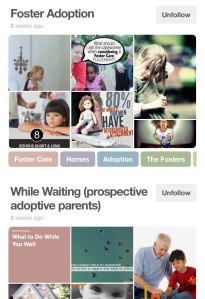



 which has proven to be quite the page turner! You might not be aware, but several of our CHI social workers are quite bookworm-ish ~ and therefore several of us obtained a copy upon the debut. As an agency, we have always loved to review books that may have an impact on our adoptive families.
which has proven to be quite the page turner! You might not be aware, but several of our CHI social workers are quite bookworm-ish ~ and therefore several of us obtained a copy upon the debut. As an agency, we have always loved to review books that may have an impact on our adoptive families.